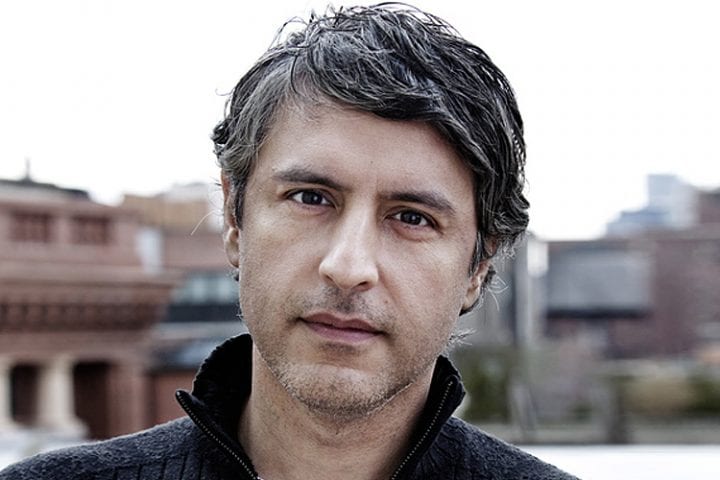
Five Reasons to See Reza Aslan
November 8, 2017
We can think of many reasons why you should join SAL on Tuesday, November 14 to hear Reza Aslan, acclaimed scholar of religions and bridge-builder between faiths, present an original multimedia lecture on humanity’s struggle to make sense of the divine. Here are our top five:
By: Emmy Newman, SAL Intern
1. He doesn’t play spiritual favorites. Reza Aslan is nothing if not considerate of varying religious beliefs, having belonged to different sects himself. When Aslan moved to the United States with his family, he describes their religious beliefs as “tepid Islam.” In high school, Aslan adopted the zealous Christianity of his friends as he questioned how to feel closer to his idea of God. Later in life, he returned to Islam, not because he found Islam to be more true than Christianity, but “because Islam provides me with the ‘language’ I feel most comfortable with in expressing my faith. It provides me with symbols and metaphors for thinking about God that I find useful in making sense of the universe,” Aslan writes.
2. He is patient and compassionate when discussing contentious topics. Aslan was interviewed on Fox News in 2013 about his book Zealot: The Life and Times of Jesus of Nazareth. In what has become his most famous soundbite, Fox News’s Lauren Green asked Aslan how he, as a Muslim, could write a book about Jesus, a figure distinctly not of his faith. Aslan kept his composure during the interview, attempting to clear any confusion by stating, “I am a scholar of religion . . . who has been studying the origins of Christianity for two decades, who also just happens to be a Muslim.” But Green remained unconvinced and continued to berate Aslan by reciting xenophobic reviews about the book, such as a reviewer on foxnews.com announcing, “It is not a historian’s report on Jesus, it is an educated Muslim’s opinion on Jesus.” Throughout the interview, Aslan stuck to the facts of his scholarship and research.
3. He doesn’t do anything half-way. While filming his documentary series Believer, Aslan lived among fringe religious sects in far flung corners of the globe. In Varanasi, India, he encountered the Aghori, a splinter of Hinduism that abhors the caste system and demonstrates it by proving that no one and nothing is untouchable. In his meeting with an Aghori guru, Aslan bathes in the Ganges, has his face smeared with human ashes from a burial, and eventually eats human brain matter. But Aslan didn’t do all that for extremist showboating, instead striving to show that dedicated faith can change the world. In the end of the episode, Aslan meets a group of Aghoris who enact their belief that no one is untouchable by running a clinic for lepers and an orphanage for those abandoned by their families.
4. He’s fluent in Biblical Greek. Aslan is a certified smart cookie with three advanced degrees: a Masters in Theological Studies, a PhD in the Sociology of Religions, and an MFA in Fiction from the Iowa Writers Workshop. He was named the Truman Capote Fellow in fiction during his time at Iowa and was awarded the prestigious James Joyce Award for excellence in his field of work and its profound impact on the world. He has spent over twenty years researching religiosity, and is constantly working at breaking down assumptions and shattering preconceived notions through accessible scholarship and media.
5. He has hope. The study of religion also means the study of religious conflicts, and Aslan is no stranger to how throughout history “religion has been a force both for boundless good and for unspeakable evil,” as he writes in his newest book, God: A Human History. Aslan sets his goal to be “a linguist, to demonstrate that, while we speak in many different religions, we are, more often than not, often expressing the same faith,” in an essay he wrote for CNN. While his hopes for religious cohabitation of the global community seem a long way off in the light of history, he knows that by starting small we can get things done. In an interview earlier this year with Fast Company, Aslan states, “I really believe that empathy is a human being’s greatest strength. Empathy changes everything. It can change the way your brain functions. It can change the way in which your society functions. It can change the world.”
This is a talk you don’t want to miss. Click here for more information and tickets. All orders (except Student and Create-Your-Own Subscriptions) include a copy of Reza’s latest, God: A Human History.